Area farmers call on Congress to make climate policy a priority
| Published: 03-12-2023 2:01 PM |
MONTAGUE — Red Fire Farm’s Ryan and Sarah Voiland joined hundreds of farmers from across the U.S. for a climate rally in Washington D.C. last week, marching to the Capitol before meeting with legislators to ask for climate change policy to be a priority in the 2023 Farm Bill.
Every five years, Congress passes legislation that sets national agriculture, nutrition, conservation and forestry policy, commonly referred to as the Farm Bill. With this legislation in mind, farmers gathered last week for “Farmers for Climate Action: Rally for Resilience.”
“The expertise and experience of all farmers need to be heard and understood by our lawmakers,” Jessy Gill, program and policy director of World Farmers said in a statement, adding that “without intentional inclusion of those farmer voices most marginalized and underserved, our food and farm systems will continue to cater to the most visible, instead of the most vulnerable.”
Ryan Voiland agreed, arguing that “farmers are on the front lines of dealing with climate change.” The Voilands run a 200-acre organic vegetable farm with land in Granby and Montague.
Ryan Voiland said he took solace in learning that while many of the farmers he met while marching on March 7 lived thousands of miles away from the Pioneer Valley, most struggle with similar climate issues and are “concerned about the environmental integrity, about the way they’re farming,” just like he is.
“It was a remarkably diverse group of farmers from around the country,” he said. “What we found talking to a lot of farmers who were there was that many challenges … are similar types of things farmers are facing throughout the country.”
Areas of concern, which the farmers implored legislators to address while policymaking, included those related to irrigation infrastructure, drainage projects and soil health. Supporting “innovative farming practices” that translate to healthier land, Voiland said, “can help mitigate climate change to some extent.” Increasing the concentration of organic matter in the soil, for example, can help absorb more carbon dioxide.
“Organic farms also have so many climate solutions to share, practices we have been using and teaching for years, all the different ways we can put atmospheric carbon back into the soil and make it richer for future generations, such as cover cropping, interseeding, compost and letting the fields rest,” Voiland added in a statement.
Article continues after...
Yesterday's Most Read Articles
 Of nearly 180 canoes in River Rat Race, Zaveral/MacDowell team claims victory
Of nearly 180 canoes in River Rat Race, Zaveral/MacDowell team claims victory
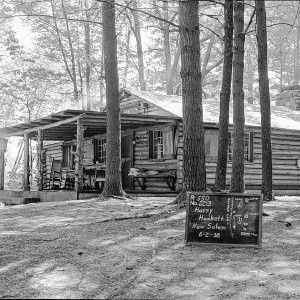 Wealth of historic Quabbin Reservoir photos available online
Wealth of historic Quabbin Reservoir photos available online
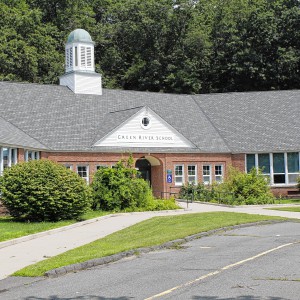 Greenfield seeks answers for $1M in state funds for Green River School
Greenfield seeks answers for $1M in state funds for Green River School
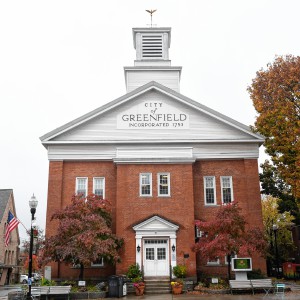 Proposed Greenfield tax fund would benefit elderly, residents with disabilities
Proposed Greenfield tax fund would benefit elderly, residents with disabilities
 Tea Guys of Whately owes $2M for breach of contract, judge rules
Tea Guys of Whately owes $2M for breach of contract, judge rules
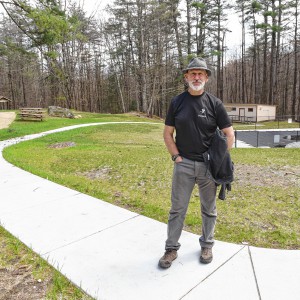 $427K to expand Camp Apex capacity in Shelburne
$427K to expand Camp Apex capacity in Shelburne
The delegation of farmers met with several congressional offices on March 8, including those of U.S. Sens. Ed Markey and Elizabeth Warren, and U.S. Reps. Jim McGovern, Richie Neal and Ayanna Pressley. They “all seemed very receptive,” Voiland noted.
“We wanted to join in asking Congress to help diversified organic farms like ours withstand increasingly erratic weather, like the record rainfall [that] drowned our crops in 2021 and the subsequent drought in 2022,” Sarah Voiland said in a statement.
“We’re proud to join forces with such a broad and diverse coalition of farm advocacy groups to hold up farmer-led climate solutions, promote racial equity in the food system, and support our communities over the corporations,” added Colrain resident Marty Dagoberto, policy director of the Massachusetts chapter of the Northeast Organic Farming Association.
Reach Julian Mendoza
at 413-930-4231 or
jmendoza@recorder.com.

 PHOTOS: Blended learning
PHOTOS: Blended learning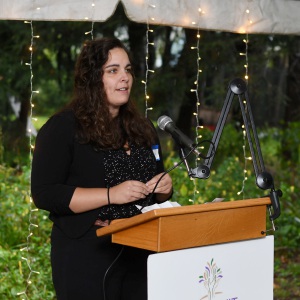 15th annual NELCWIT fundraiser set for Thursday
15th annual NELCWIT fundraiser set for Thursday With eye toward teaching firearm safety, Mahar’s Junior ROTC adding air rifles
With eye toward teaching firearm safety, Mahar’s Junior ROTC adding air rifles
